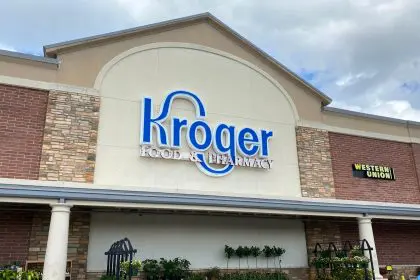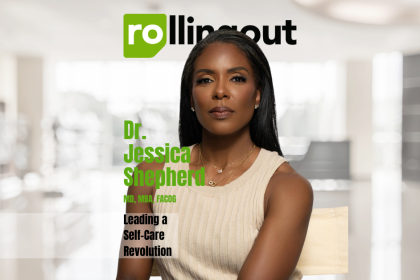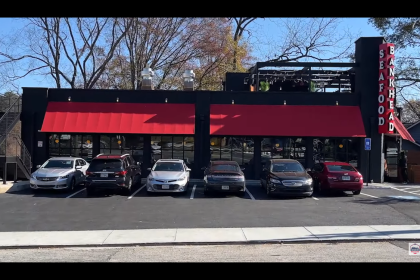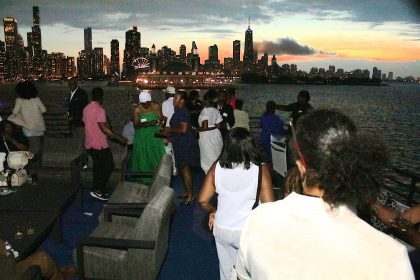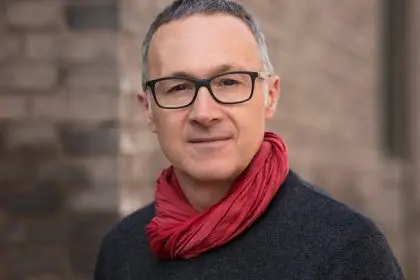
As MetLife’s chief marketing and communications officer, Michael Roberts has reached impressive heights in corporate America, serving on the company’s Executive Leadership Team. Since joining MetLife in 2021, Roberts has focused on ensuring marketing and communications are integral to the company’s customer-centric growth engine, helping customers live more confident futures.
His journey to this executive position is rooted in powerful influences from his early years – his church upbringing and the transformative impact of INROADS, an organization dedicated to developing and placing talented minority youth in business and industry. In this exclusive Q&A with Munson Steed of the business exchange, Roberts shares how these experiences shaped his values, career trajectory, and vision for community empowerment.
What organizations have had an impact on you becoming an officer inside an organization like MetLife?
When I look back on all of the things that I’ve experienced in my career, I think a lot of what has been key to my success now, have been things that came at the very beginning of my life. I am the son of a Baptist minister. A PK Baptist Church in Boston, organized as the first African meeting house in the late 1800s, and my father just retired at being pastor there after 45 years in the pulpit, and that was an experience for me that helped me create a set of values which I think have lasted throughout this entire time.
My parents lived in an almost all white, except for the 6 of us in our family, suburb of Boston. I really got to experience the uniqueness and the specialness of the black community through church. The collective spirit and the Christian values that I was brought up with are things that have shaped me and have helped me today.
Also through that church experience, I was introduced to an organization called INROADS, it was through a member at my father’s church that I was introduced to INROADS, and then took that foundation of collective spirit and good values, and gave me an opportunity to observe how they might work in the business world. Those are probably two of my earliest experiences that I can relate directly to my success today.
What did INROADS do and what was that collective mindset that you entered?
INROADS took a number of very talented young people, and this was in my high school days, and put us together in kind of a collective, trained us up and had us go out and have experiences in the business world in Boston during my high school years in the late eighties and nineties in Boston.
It did three things, one, it gave us the confidence to know that we could be successful in any environment. It gave us the scaffolding and the strength of having a group of young brothers and sisters around us that were striving for the same thing, and who we could learn from and in fact, compare notes and learn, and build on each other’s successes in those situations that we found ourselves in those big companies. But it also gave us a connection to both the past and the future, and gave us a perspective on what was possible. For me, community and possibility were two of the biggest things that INROADS gave me at that time.
What would you benchmark as some of those main career moves that you never thought were possible, but now know are possible?
It’s been an interesting career for me. I’ve been at a number of different companies, and now, as the Chief Marketing Communications Officer at MetLife, I’m in a senior job, reporting to the CEO of a $70 billion Fortune 50 company. And having this specific job, in this specific company, in this specific industry, at this specific level was never something that was on my radar screen from the beginning.
I would say that it was a series of changes in direction that I embraced, that gave me the opportunity to continue moving forward in my career. And it was the support of so many people in making those changes from early on as a consultant to corporate strategy, to marketing, and now to a Chief Marketing Officer position.
I would say two things. One is, my degree was not my destiny. I was a music major, and so that was not necessarily my destiny, seeing possibility beyond that was important early on. And then seeing possibility beyond the experiences I was having at the time, as I made these changes and progressed through my career was important. The second thing is an openness to whatever might come, and knowing that based on my values, my work ethic, the experiences I had and the help I had, that I could be successful in whatever came, and I think those two things have been instrumental in finding my path, which is a pretty nontraditional path to the place that I’m at.
How has your position opened your vision and allowed you to share with others inside your community that this is a possibility?
One of the most important things about where I am right now is that we believe in living our purpose as a company. Living that purpose means supporting the communities in which we operate and embracing our obligation to support everybody in the community, and in particular, the people who may have been underserved by the systems or organizations that are around us.
I’m proud to say that as a company, MetLife has welcomed almost a thousand interns in INROADS over those years. My department is a part of the INROADS program, and that’s just one example of some of the many things that we do to support the development of folks who have been sometimes overlooked, or may not have the exact same opportunity as others through many of the organizations. My role in that is not just to be a fierce advocate, but to get involved in these organizations. Encourage my teams to get involved in these organizations that are helping create opportunities and helping make our communities more resilient.
If you were giving a commencement speech looking at your younger self, what would the title be, and what would be the 3 things that you would challenge the next generation to do?
I think the title of my commencement speech would probably be “Looking Forward”. We think about where we are in our careers, in our lives, and we have a choice to look back or to look forward, to think about what our legacy is, or think about what our legacy means, and my view is that I would make the choice to look forward.
There would be three things that I would say that we have to embody as individuals, we have to impart on organizations, and if we do that, we can be a bit of a beacon for what the current environment needs. Going back to where we started this conversation, I learned that from the community I was brought up in and in the church my father pastored.
I think the second thing is that we have to embrace historical context, looking back is part of looking forward. And I think the third thing is, we have to strive and constantly look to find ways to not see things just from our own perspective. So historical context, and broad perspectives are the things that will help us look forward.
Can you describe your vision or hope for our community, so that we take another look at both insurance and looking at participating as an individual selling those products and services as a career?
I would think about a couple of things. I think one, people looking at financial services as a career have to really understand that commerce can create good. Being a purpose driven organization, being a force for good in the world, is what MetLife is all about. There isn’t this dichotomy between financial services and goodness, these things can be one in the same, and so capitalism isn’t the enemy. In fact, capitalism is one of the things that has brought our people a significant amount of the progress that we’ve had.
As we think about careers and financial services and how capitalism can help, it is something that actually can create opportunity and can create security. I think we also have to look at a few different dimensions of financial services, and these are important. One is the income that people have in the budget, and how cash moves in and out of our lives on a day to day basis, and that’s important.
But the other two pieces of it, I think, are equally important, and are not emphasized enough in our community. One is wealth creation, and two is protection, these two things go hand in hand. We have to have protection, and in many cases that’s through the form of insurance. In other cases, if you have the means you can almost self insure. But protection is really really important in order to make sure that we have the resources in the time of need that are required in order to persist.
The second is wealth creation, and then also wealth transfer. Wealth creation for the majority of people looks like their retirement plan and their house, and I think we have to imagine more in our community. That wealth creation can be more than just those two things, and we have to broaden and diversify the wealth creation opportunities that we have.
People who are in the financial services world can create those opportunities for others and help others find and see those opportunities for investments and different types of savings. When I think about what our communities need, I think its discipline in managing income and savings from a day to day perspective, a focus on protection, so that in those times of need we aren’t stressed and then diversifying our sources of wealth creation.
You mentioned you were a music major. What music do you enjoy listening to and what’s in your playlist?
My background is in opera, I was trained as an opera singer. My undergraduate degree is in The History and Theory of Music from Dartmouth College, and I did a Master’s in Voice with a concentration in opera at Boston University, and so I came up as an opera singer. I’m still singing, not as much in church since my father retired, but I’m still singing.
One of my favorite pieces of music is Mahler’s second symphony. It is a grand and majestic work, and so that’s always on my playlist. Miles Davis’ Kind of Blue, because you can’t get better than that album from jazz, and then from a pop perspective, from the earliest times I have been a huge Prince fan, and so you name all of the music, and then Prince’s collaborations with folks like Mavis Staples, and those sorts of things were close to my heart, and all remain on my playlist.



